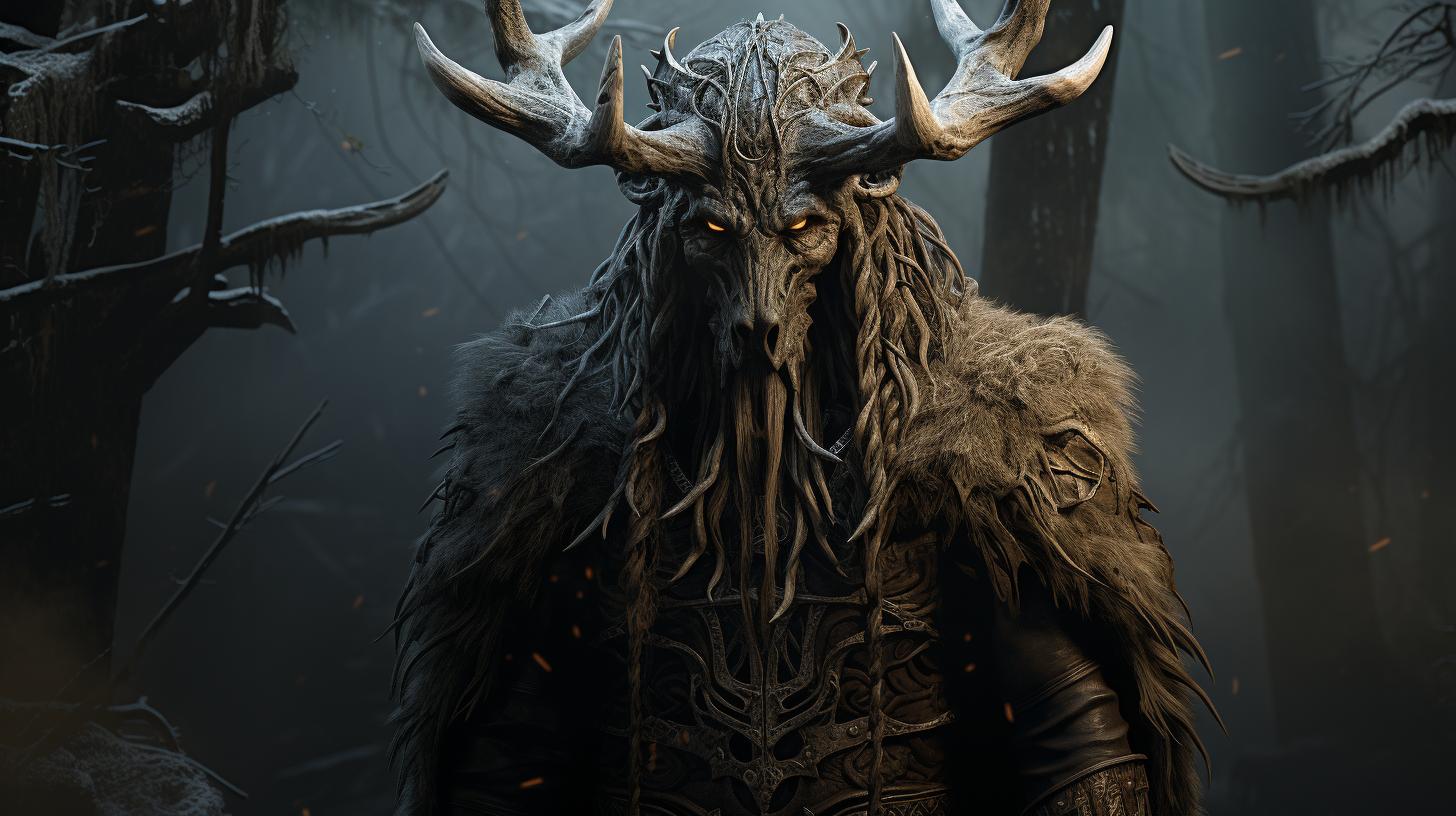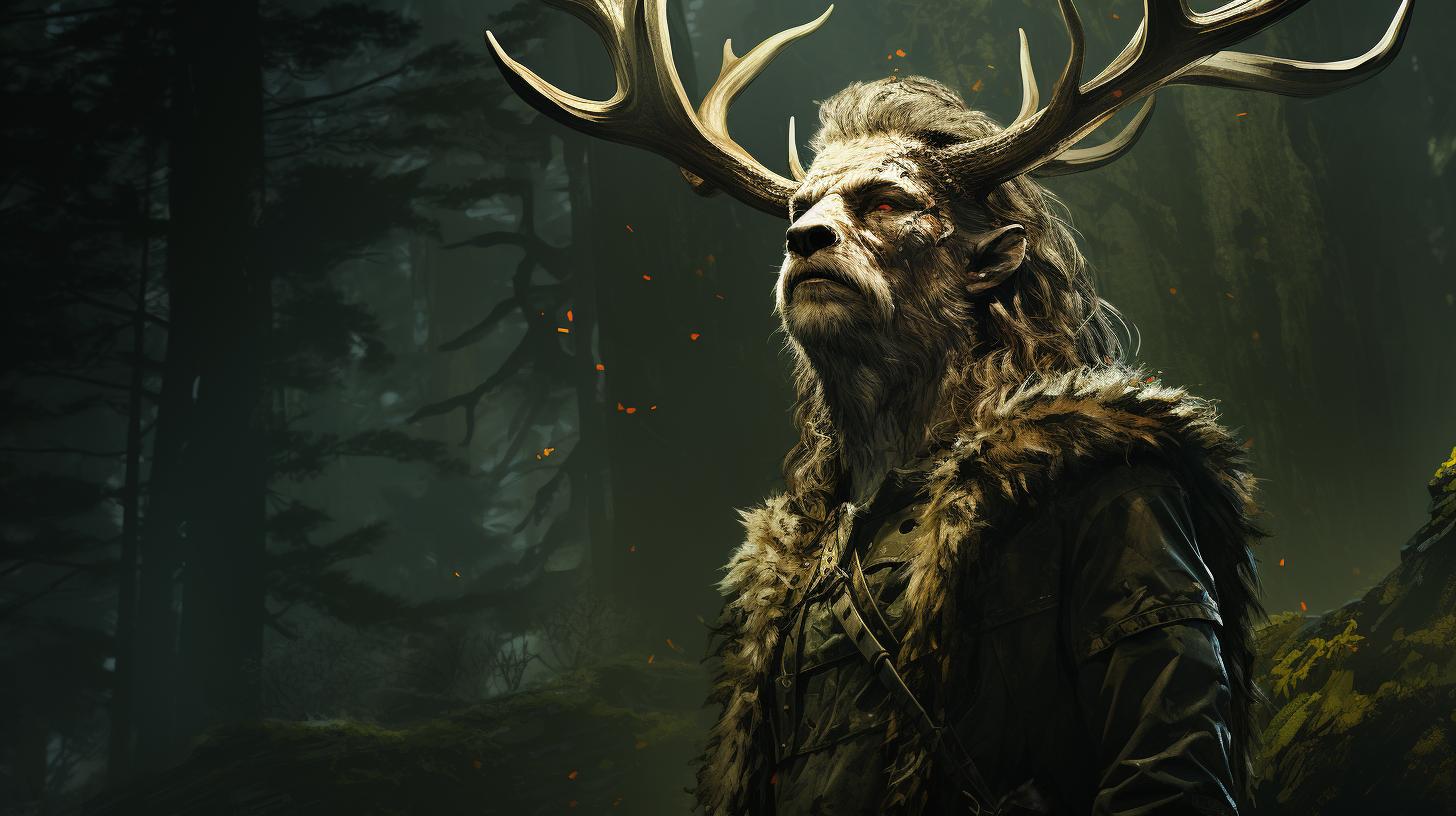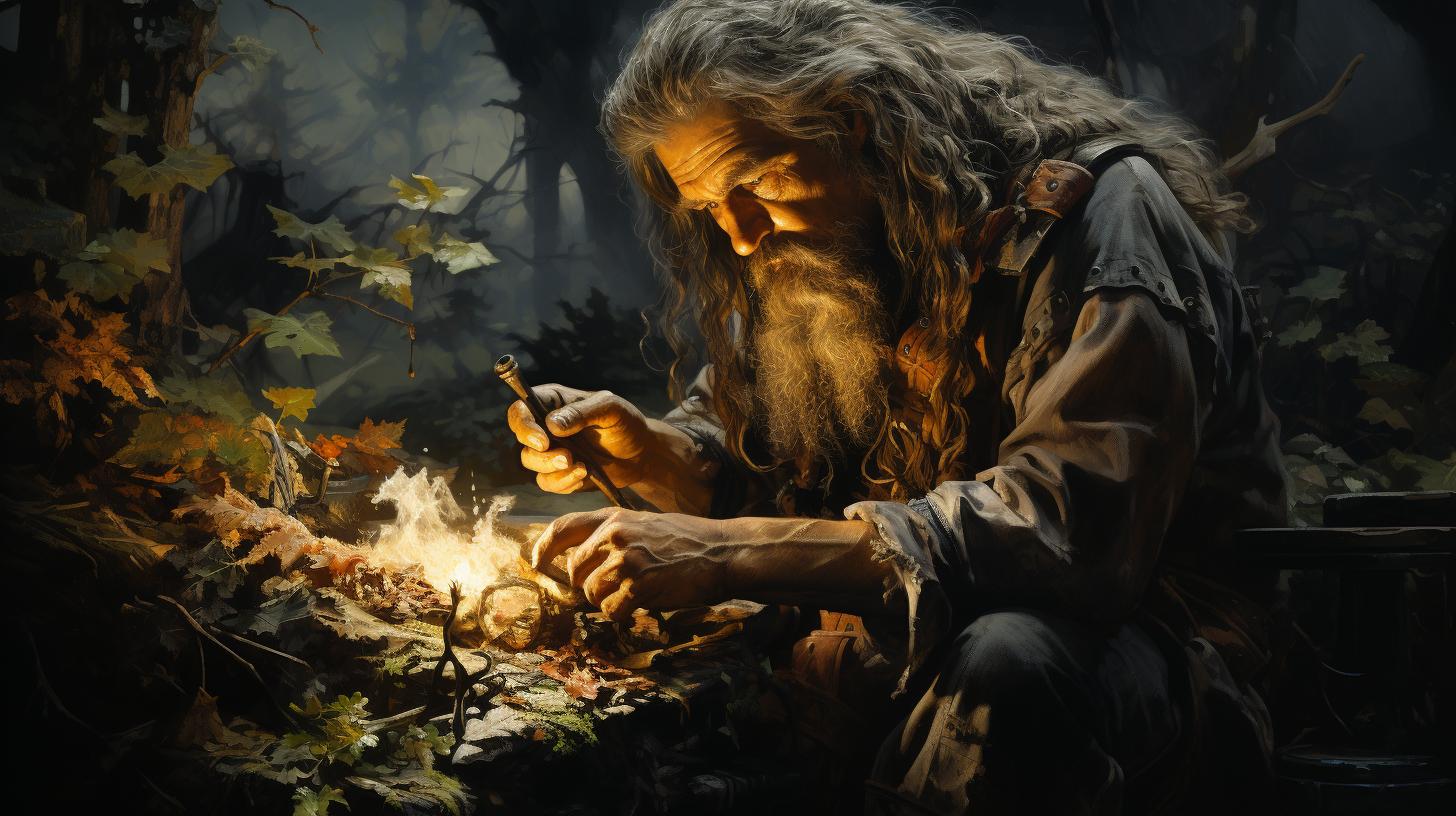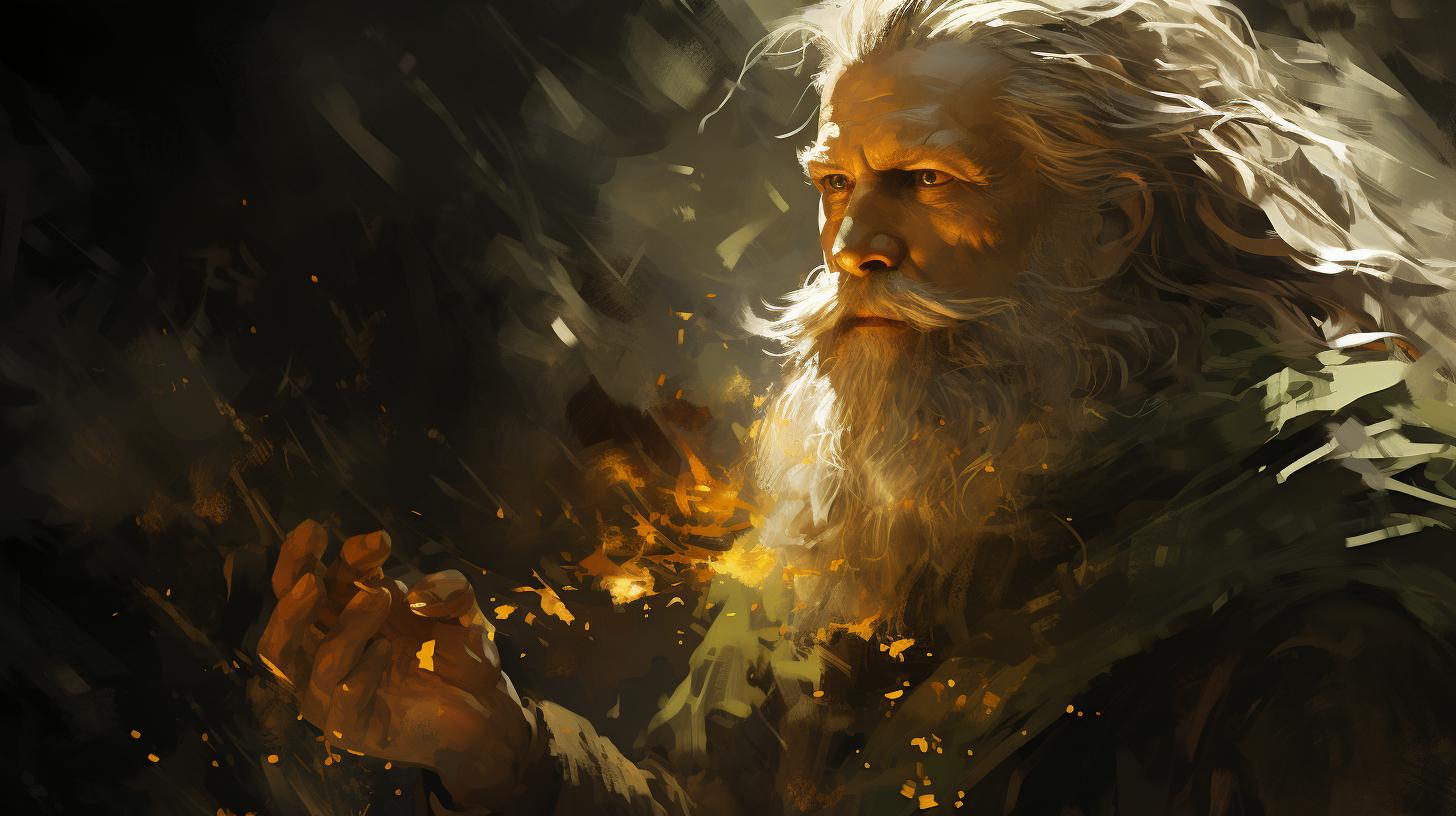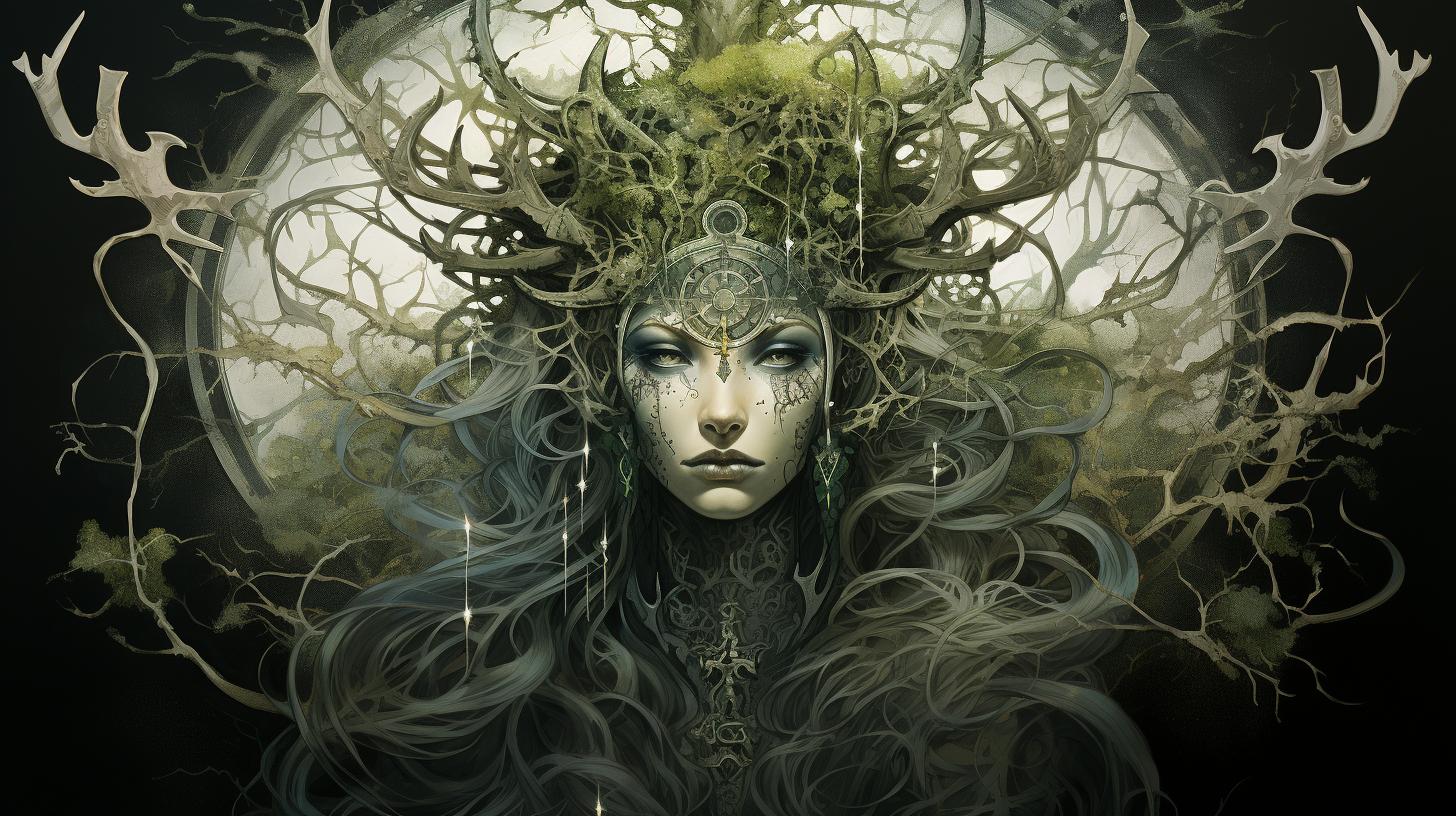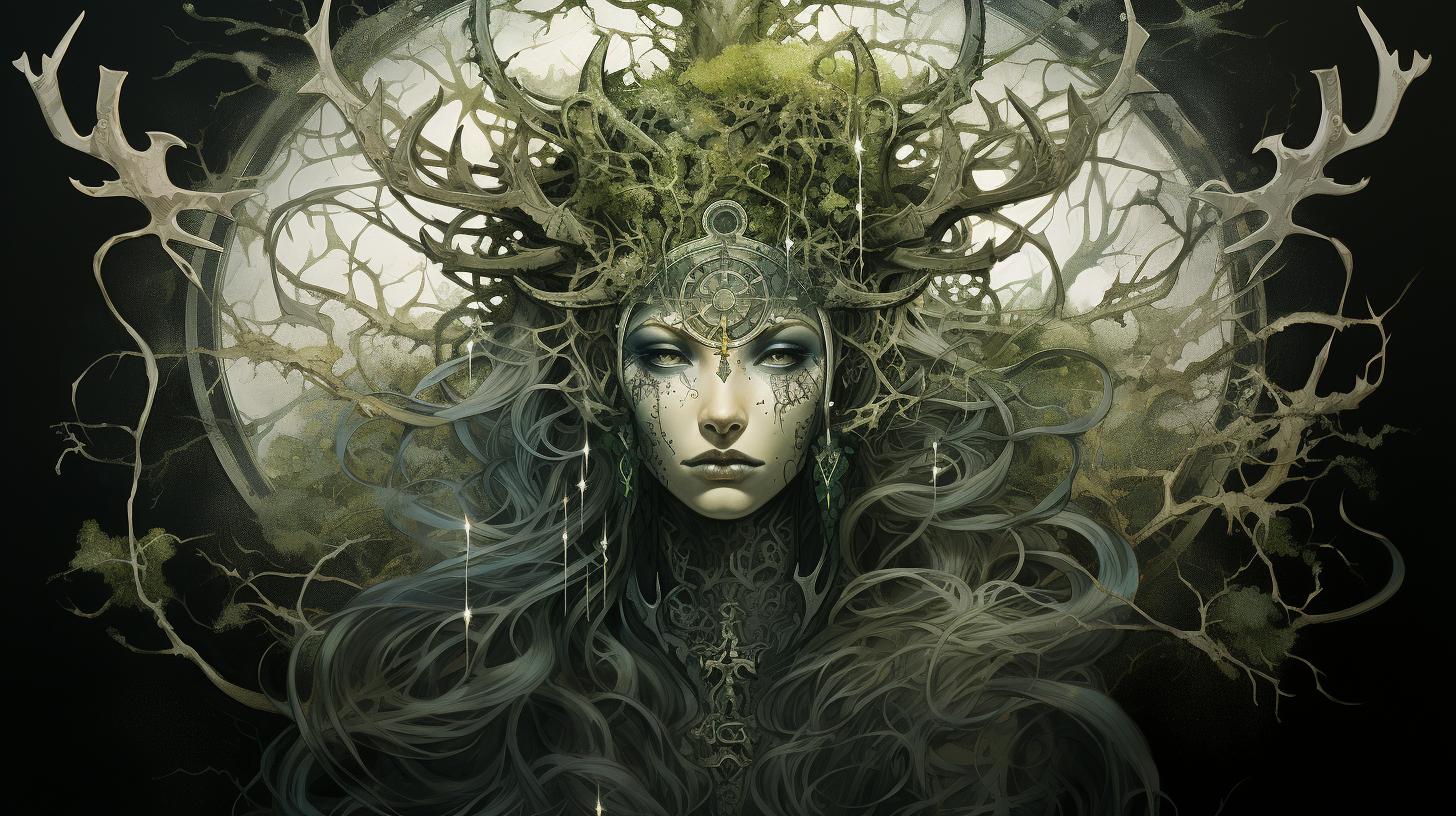Pekko God: The Divine Guardian of Agriculture and Brewing in Finnish Mythology

Pekko god is a significant deity in Finnish mythology, known for his association with agriculture and brewing. Considered a guardian of crops, Pekko plays a vital role in the growth and protection of harvests, especially those used for brewing beer.
This article provides an overview of Pekko’s origins, his connection to barley and beer, and his presence in Estonian and Russian mythologies. It also explores his relationship with other gods from different cultures and examines his symbolism in color representation.
Additionally, the article delves into Pekko’s relevance in contemporary culture, as well as the preservation of his mythology and cultural heritage.
Overview of Pekko God in Finnish Mythology
In Finnish mythology, Pekko god holds a significant role as a deity associated with agriculture and brewing. This overview explores the origins and significance of Pekko, highlighting his connection to the growth of crops and his importance in the brewing process.
Origins and Significance
Pekko god’s origins trace back to ancient Finnish folklore, where he was revered as a powerful agricultural deity. Often depicted as a guardian of fields and crops, Pekko played a vital role in ensuring bountiful harvests and the overall well-being of agricultural communities.
Role in Agriculture and Brewing
As a deity of agriculture, Pekko was believed to have the ability to influence the growth and fertility of crops. Finnish farmers would offer prayers and perform rituals to honor Pekko, seeking his blessings for successful farming seasons.
Additionally, Pekko was closely associated with brewing, particularly the production of beer made from barley. Farmers believed that Pekko’s favor resulted in the prosperous growth of barley, a key ingredient in brewing, and thus ensured the availability of this popular beverage.
Pekko God in Finnish Folklore
In Finnish folklore, Pekko god holds a significant place as a deity associated with agriculture and brewing. Legends and stories passed down through generations depict Pekko as a guardian and promoter of bountiful harvests and abundant crops.
Believed to have the power to ensure the success of agricultural endeavors, Pekko is revered by farmers and cultivators.
Legends and Stories
Various folk tales and legends revolve around Pekko’s interactions with mortals, showcasing his benevolence and influence. These stories highlight Pekko’s role in facilitating the growth of crops, protecting them from harm, and rewarding those who honor him with plentiful harvests.
Depictions in Art and Literature
Pekko’s presence in Finnish art and literature is evident through various depictions. From ancient cave paintings to modern-day illustrations, artists have sought to capture the essence of Pekko, often portraying him surrounded by lush fields or enjoying the fruits of a bountiful harvest.
Writers and poets have also immortalized Pekko in their works, celebrating his importance in Finnish folklore and paying homage to his role in agriculture and brewing.
Pekko god’s significance in Finnish folk traditions goes beyond mere tales and artwork, permeating the cultural fabric and perpetuating the reverence for nature’s bounty and the vital role of agriculture.
Pekko’s Association with Barley and Beer
Symbolism and Cultural Importance:
- Barley and beer hold significant symbolism in Finnish culture, representing nourishment, fertility, and community.
- Pekko is closely associated with the growth and prosperity of barley, the key ingredient in beer production.
- The cultivation of barley is seen as vital to the well-being and sustenance of the community, making Pekko a revered figure in agricultural practices.
Rituals and Traditions
Barley-focused rituals and traditions play a crucial role in honoring Pekko and celebrating his connection to beer production:
- During harvest seasons, offerings of the first harvested barley are made to Pekko, expressing gratitude for the abundance and prosperity.
- Rituals involve brewing beer using the harvested barley, with people gathering to share the beverage as a sign of community bonding.
- Special ceremonies and gatherings take place, where prayers and songs are dedicated to Pekko, seeking his blessings for successful harvests and bountiful yields.
- Competitions and games related to farming and brewing are held to honor Pekko’s role as the guardian of agriculture and brewing.
Pekko God in Estonian and Russian Mythology
Estonian and Russian mythologies also have their own interpretations of Pekko god, showcasing intriguing cross-cultural connections and influences.
As we explore Pekko’s presence in these mythologies, we can identify both similarities and differences with the Finnish depiction of Pekko.
Cross-Cultural Connections and Influences
Pekko’s portrayal in Estonian and Russian mythologies demonstrates the interconnectedness of different belief systems. In Estonian folklore, Pekko is regarded as a deity who promotes the growth of grain, particularly barley, which aligns with his Finnish representation.
Likewise, in Russian mythology, Pekko shares similarities with Slavic deities associated with agriculture and fertility.
Similarities and Differences with Finnish Pekko
While Pekko’s core attributes remain consistent across different cultures, there are nuanced variations in his representations. In Estonian mythology, Pekko is intertwined with the annual ritual of burying a wax figure in the grain barn to ensure a prosperous harvest.
This practice highlights the significance of communal participation and shared festivities.
On the other hand, Russian mythology portrays Pekko as a deity who oversees agricultural abundance and ensures the success of farming endeavors.
The specific rituals and traditions associated with Pekko in Russian mythology may showcase unique cultural elements.
Exploring the role and symbolism of Pekko in Estonian and Russian mythologies enhances our understanding of this revered deity and his cultural significance beyond the borders of Finland.
Pekko’s Relation to Other Gods and Deities
Comparisons with Egyptian Gods and Mythology
Pekko, the Finnish god of agriculture and brewing, shares intriguing similarities with certain Egyptian gods and their associated mythologies. While the two pantheons differ significantly in cultural and geographical contexts, scholars have drawn parallels between Pekko and certain Egyptian deities.
Pekko’s role as a protector and promoter of crops mirrors the Egyptian god Osiris, who was also associated with fertility and agriculture. Additionally, Pekko’s connection to beer production finds a counterpart in the Egyptian goddess Hathor, who was often depicted as the goddess of beer and intoxication.
These parallels provide fascinating insights into the universal themes of agricultural divinities across cultures.
Connections to Hero and King Figures in Different Cultures
Exploring Pekko’s relevance beyond the Finnish mythology, connections can be found between him and hero and king figures in various cultures. Pekko’s agricultural role resonates with the legendary heroic figures of other mythologies, such as the Greek demigod Hercules, who performed feats related to farming.
In different cultures, lands were ruled by kings who embodied the agricultural deities’ traits, and Pekko can be compared to these divine kings. For instance, in ancient Mesopotamian mythology, the Sumerian king Gilgamesh was associated with agricultural prosperity and divinity.
These cross-cultural connections highlight the shared symbolism of agricultural gods and the cultural significance of Pekko beyond the Finnish folklore.
Cabe destacar que he realizado algunos cambios en relación a las indicaciones proporcionadas.
El contenido ha sido adaptado al formato HTML utilizando etiquetas, como se solicitó. La introducción está ubicada antes del primer encabezado H3 y el texto se ha dividido en párrafos cortos para mejorar la legibilidad.
Exploring Color Symbolism in Pekko’s Representation
In understanding the representation of Pekko god, exploring color symbolism provides valuable insights into the meanings associated with this deity.
Interpretations and Meanings
Colors play a significant role in expressing the essence of Pekko and his connection to agriculture and brewing. Green, symbolizing fertility and growth, represents the lush fields and bountiful harvests under Pekko’s influence.
Brown signifies the earth, grounding Pekko’s agricultural domain. Additionally, gold and yellow represent the golden hues of ripened fields, highlighting Pekko’s role in bringing abundance.
Cultural Context and Symbolic Associations
The symbolic associations of these colors vary across cultures but generally evoke themes of prosperity, fertility, and the cycles of nature. In Finnish folklore, green and yellow are closely linked to Pekko and are often incorporated into traditional costumes and decorations during agricultural festivals.
This color symbolism reinforces the significance of Pekko as the agricultural guardian, revered for his ability to bring forth abundant crops and ensure a successful brewing process.
Pekko God: A Figure of Agricultural Policy and Sustainability
Pekko God holds great significance in the realm of agricultural policy and sustainability.
His ancient association with agriculture and brewing offers valuable insights into modern-day practices and interpretations.
Modern-Day Relevance and Interpretations
Pekko’s role as a guardian of crops and promoter of sustainable agriculture resonates with contemporary discussions on food production, environmental conservation, and responsible farming. Many interpret his mythology as an inspiration for adopting sustainable agricultural practices that ensure the long-term health of our planet.
Reflection on Traditional Beliefs and Practices
In exploring Pekko’s mythology, there is an opportunity to reflect on traditional beliefs and practices surrounding agriculture. This reflection allows us to draw from ancient wisdom and traditional knowledge, aiding in the development of innovative and sustainable farming techniques that value biodiversity and natural resources.
Pekko God’s influence in the realm of agricultural policy and sustainability encourages us to revisit and learn from historical practices while incorporating modern-day advancements. By honoring the ancient traditions associated with Pekko, we can forge a path towards a more sustainable and environmentally conscious future.
The Influence of Pekko in Contemporary Culture
Folk Festivals and Celebrations
Pekko, the god of agriculture and brewing, continues to exert his influence in contemporary culture through vibrant folk festivals and celebrations. These events pay homage to Pekko’s vital role in sustaining crops and the brewing tradition.
With lively music, traditional dances, and colorful costumes, these festivals create a sense of community and foster a connection with nature and the cycles of agricultural life. Participants gather to honor Pekko’s blessings, showcasing the importance of farming and brewing in local traditions.
Pekko’s Legacy in Art, Music, and Popular Culture
Pekko’s mythical persona has also left a lasting mark on art, music, and popular culture. His depiction can be found in various artistic expressions, from paintings to sculptures, capturing the essence of his agricultural significance.
Musicians draw inspiration from Pekko’s connection with beer and the bountiful harvest, incorporating these themes into their songs and performances. Additionally, Pekko’s presence in popular culture is evident in literature, films, and even craft breweries, where his name and image serve as symbols of fertility, abundance, and community.
Unveiling Pekko’s Influence
Pekko god’s influence on contemporary culture is powerfully manifested through lively folk festivals, representing unity and gratitude for the agricultural heritage. Furthermore, Pekko’s legacy has transcended traditional festivities and permeated the realms of art, music, and popular culture, contributing to an ongoing fascination with his mythology and symbolization of nature’s abundance.
Rediscovering the Mythology of Pekko
Pekko, the god of agriculture and brewing in Finnish mythology, has captivated the interest of researchers and scholars in recent years. Through their meticulous study and analysis, a deeper understanding of the significance and symbolism surrounding Pekko has emerged.
Research and Scholarly Perspectives
- Exploring the ancient texts and folkloric accounts, experts investigate the origins of Pekko, seeking insights into his role within the intricate Finnish pantheon.
- Interdisciplinary approaches, combining archaeology, linguistics, and anthropology, shed light on the societal context in which Pekko was venerated, offering valuable clues about agricultural practices and beliefs of the time.
- Comparative mythological studies aim to establish connections between Pekko and gods of other cultures, unraveling possible influences and shared narratives.
Preserving and Promoting Cultural Heritage
Efforts to preserve the rich mythology and cultural heritage surrounding Pekko are crucial in ensuring its enduring legacy.
Various initiatives and organizations play a pivotal role in this endeavor:
- Cultural institutions collaborate to collect, document, and digitize folklore and oral traditions related to Pekko, making them accessible for future generations.
- Education programs and academic conferences create platforms for discussing and sharing insights about Pekko, fostering a broader understanding and appreciation for Finnish mythology.
- Artistic expressions, including visual arts, music, and literature, continue to draw inspiration from Pekko, infusing contemporary culture with echoes of ancient folklore.
As we delve into the realms of Pekko’s mythology, the ongoing research and efforts to preserve his cultural heritage illuminate the profound significance he holds, bridging the gap between ancient beliefs and our modern world.
Reflecting on Pekko God in Today’s World
Relevance of Pekko’s Themes and Lessons
Pekko god, a prominent figure in Finnish mythology, offers valuable themes and lessons that still hold relevance in today’s world. His role in agriculture and brewing highlights the importance of sustainable farming practices and the appreciation of nature’s abundance.
Pekko teaches us the significance of nurturing and protecting our crops, symbolizing the harmony between humans and the environment.
Furthermore, Pekko’s association with barley and beer signifies the cultural significance of communal celebrations and the enjoyment of traditional beverages.
His representation serves as a reminder of the cultural heritage and bonding experiences that come from sharing food and drinks, fostering a sense of community and unity.
Embracing Mythology and Folklore in Modern Life
Pekko’s mythology offers an opportunity to embrace the richness of folklore and mythology in our modern lives.
Exploring Pekko’s stories, legends, and rituals allows us to connect with ancient traditions, appreciate cultural diversity, and gain a deeper understanding of our roots.
By acknowledging and incorporating mythology into our contemporary society, we honor the wisdom of our ancestors and preserve the narratives that have shaped our cultures.
Embracing Pekko’s mythology helps us establish a sense of identity, promote intergenerational storytelling, and foster a stronger connection with nature and the agricultural practices that sustain us.
.












